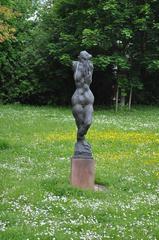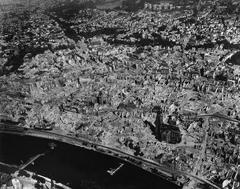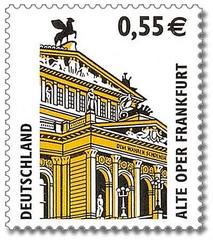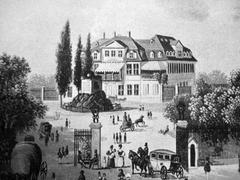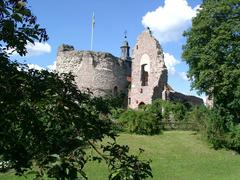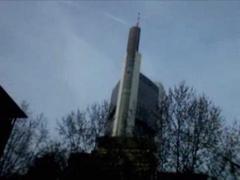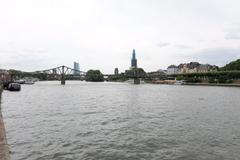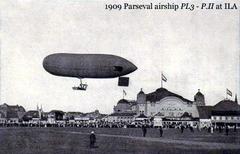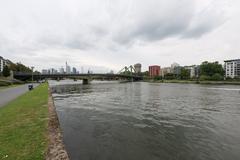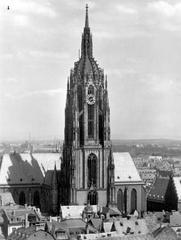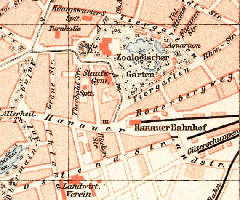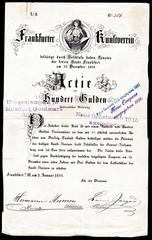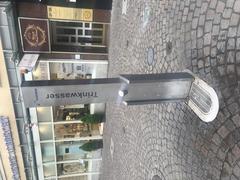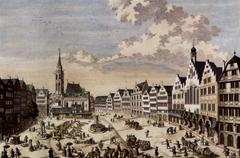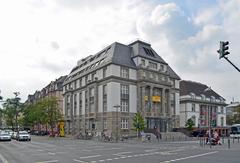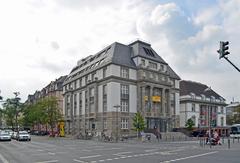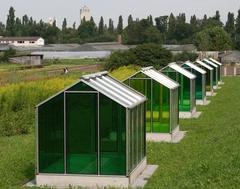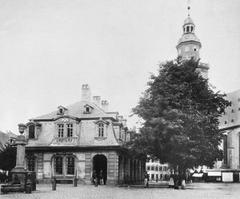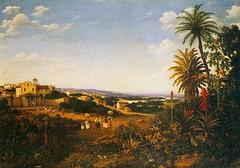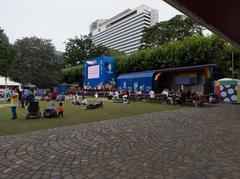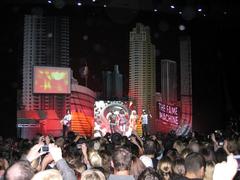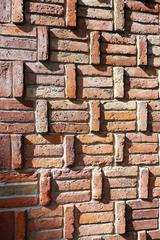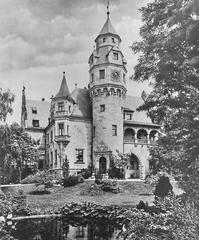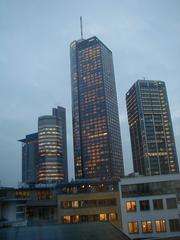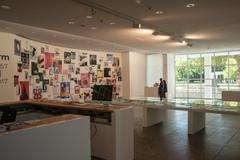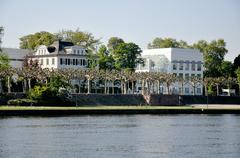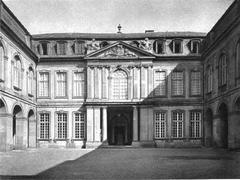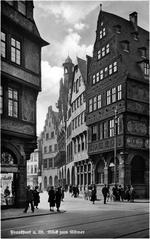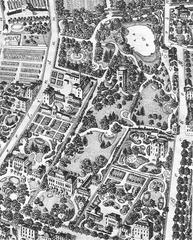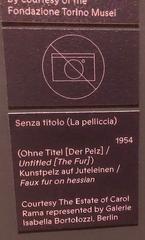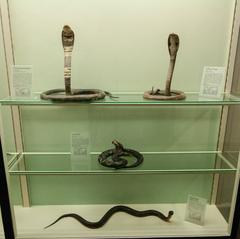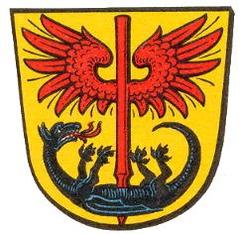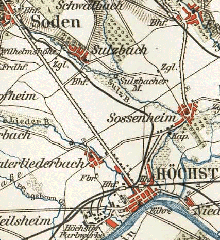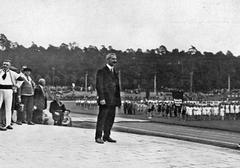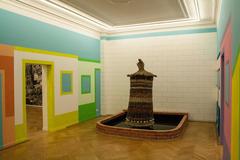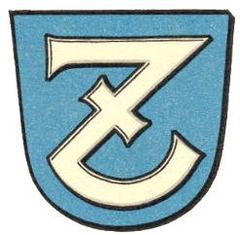
German Broadcasting Archive Frankfurt: Visiting Hours, Tickets, and Historical Significance
Date: 03/07/2025
Introduction
The German Broadcasting Archive (Deutsches Rundfunkarchiv, DRA) in Frankfurt am Main is a cornerstone of German media heritage. Established in 1952, the DRA safeguards an unparalleled collection of audio, video, documents, and photographs chronicling the evolution of German radio and television from the 1920s to the digital age. Its holdings not only showcase the technological and artistic development of broadcasting but also provide vital insights into Germany’s complex socio-political history—including the Weimar Republic, the Nazi era, the Cold War, and reunification. Situated near Frankfurt’s Museumsufer, the DRA is accessible to both researchers and the general public, offering guided tours, exhibitions, and digital resources. This detailed guide provides everything you need to plan a visit, including hours, tickets, accessibility, collection highlights, nearby attractions, and tips for an enriching experience (DRA Partner Project, Fritz Bauer Institut).
Table of Contents
- Introduction
- Origins and Evolution of the German Broadcasting Archive (DRA)
- Historical Context: Broadcasting in Germany
- Significance and Highlights of the DRA’s Collections
- Visiting the German Broadcasting Archive
- Cultural and Socio-Political Impact
- Preservation and Digitization
- Nearby Attractions and Travel Tips
- Frequently Asked Questions (FAQ)
- Conclusion
- References
Origins and Evolution of the German Broadcasting Archive (DRA)
Founded in 1952 as a charitable foundation by the Association of Public Broadcasting Corporations in Germany (ARD), the DRA was created to centralize the preservation of German broadcasting’s expanding audio and visual legacy. Initially focused on early German radio—dating back to the 1920s—the archive’s mission soon expanded to encompass television and the rapidly evolving media landscape (Wikipedia, href.hypotheses.org).
The DRA today operates from two main locations: Frankfurt am Main, which focuses on the history of West German broadcasting, and Potsdam-Babelsberg, which preserves the broadcasting legacy of the former GDR.
Historical Context: Broadcasting in Germany
Early Broadcasting and the Weimar Republic
The first German radio transmissions began in 1923, and the medium quickly became a powerful tool for entertainment, education, and news. The DRA holds significant materials from the Weimar era, illustrating early innovations in broadcasting technology and content (href.hypotheses.org).
Broadcasting under National Socialism (1933–1945)
Radio became a central propaganda instrument under the Nazi regime, tightly controlled and manipulated by the Ministry of Propaganda. The DRA’s holdings from this period document both the mechanisms of state censorship and the persuasive power of mass media (href.hypotheses.org).
Postwar Division and the Cold War
After WWII, Germany’s broadcasting landscape split along political lines, with separate systems in East and West Germany. The DRA’s Frankfurt branch focuses on West German materials, while Potsdam-Babelsberg specializes in GDR archives, providing a comprehensive view of the divided nation’s media (href.hypotheses.org).
Reunification and Contemporary Broadcasting
Following reunification in 1990, the DRA integrated the broadcasting histories of both East and West Germany, ensuring that this multi-faceted legacy remains preserved and accessible (Wikipedia).
Significance and Highlights of the DRA’s Collections
The DRA’s holdings comprise hundreds of thousands of hours of radio and television broadcasts, along with scripts, program schedules, technical documentation, photographs, and rare artifacts.
Key Collection Highlights:
- Pre-1945 Radio and TV: Rare recordings and documents from the earliest days of German broadcasting, including material from the Weimar and Nazi eras.
- GDR Television and Radio Archives: Extensive footage and documentation from East German broadcasters, covering political, cultural, and everyday life from 1952 to 1991.
- Post-Reunification Holdings: Comprehensive archives from both West and East Germany after 1990, reflecting the merged broadcasting landscape.
- Legal-Historical Materials: Audio recordings from significant events such as the 1st Frankfurt Auschwitz Trial (over 430 hours of survivor testimonies) (Fritz Bauer Institut).
- Technical and Artistic Documentation: Manuals, designs, and memorabilia related to the development of broadcasting technology and artistry.
The DRA’s collections are vital not only for historians and media scholars but also for anyone interested in understanding how broadcasting shaped and reflected German society across dramatic historical changes (DRA Partner Project).
Visiting the German Broadcasting Archive
Location and Access
The Frankfurt branch of the DRA is located at Bertramstraße 8, 60320 Frankfurt am Main, in the vibrant Sachsenhausen district near the Museumsufer. It is easily accessible via public transport, with the nearest U-Bahn stop at Miquel-/Adickesallee (lines U1, U2, U3, U8) (Visit Frankfurt, Google Maps).
Visiting Hours
- Monday to Friday: 9:00 AM – 5:00 PM
- Closed on weekends and public holidays
- Exhibition and event times may vary—always check the official DRA website for the latest updates.
Tickets and Booking
- Admission: Free for public exhibitions; some guided tours or special events may require advance booking and a nominal fee.
- Appointments: Research visits require prior arrangement; appointments can be made online or by contacting the DRA directly.
Accessibility
- The DRA is fully wheelchair accessible, with elevators, ramps, accessible restrooms, and assistance available upon request.
- If you have specific accessibility needs, notify the archive in advance.
Guided Tours and Special Events
- Guided tours are offered by appointment and provide an overview of the DRA’s collections and broadcasting history.
- Educational programs and workshops are available for schools and groups.
- Special exhibitions and lectures are held throughout the year—check the DRA website or social media for current schedules.
Photography and Digital Access
- Photography: Permitted in public exhibition areas with staff permission; prohibited in research zones.
- Digital Access: Explore digitized broadcasts via ARD Retro and the DRA’s online portal, which offers significant digital resources for remote exploration.
Cultural and Socio-Political Impact
The DRA is more than an archive: it is a central resource for international research in media studies, history, and cultural analysis. Its collections illuminate how broadcasting shaped—and was shaped by—political regimes, social movements, and cultural trends. The DRA’s holdings on GDR media, for example, are essential for understanding life and public opinion under socialism. The archive also partners with institutions such as the Fritz Bauer Institut and the Auschwitz-Birkenau Memorial to preserve and share materials of international significance (Fritz Bauer Institut).
Preservation and Digitization
The DRA is committed to preserving fragile analog media through ongoing digitization initiatives, ensuring that rare recordings, films, and documents remain accessible to future generations. The archive also collaborates with universities and research institutions to develop innovative digital platforms and metadata systems (DRA Partner Project, Academia.edu).
Nearby Attractions and Travel Tips
- Museumsufer (Museum Embankment): Home to the Städel Museum, Museum of Communication, and more.
- Historic Sites: Römer city hall, Goethe House, and the Main River promenade are all within easy reach.
- Cafés and Restaurants: The Sachsenhausen neighborhood offers a variety of dining options.
Travel Tip: Use public transport to avoid city-center traffic and parking challenges.
Frequently Asked Questions (FAQ)
Q: What are the DRA’s visiting hours?
A: Monday to Friday, 9:00 AM – 5:00 PM; closed on weekends and holidays.
Q: Is admission free?
A: Yes, for public exhibitions. Guided tours and special events may have a fee.
Q: Are guided tours available?
A: Yes, by advance booking. English-language tours can be arranged with notice.
Q: Is the archive accessible for visitors with disabilities?
A: Yes, the building is fully accessible; please inform the staff of any special requirements in advance.
Q: Can I access collections online?
A: Many digitized materials are available via the DRA website and ARD Mediathek.
Q: Are there nearby attractions?
A: Yes, including the Städel Museum, Museum of Communication, and other Museumsufer sites.
Conclusion
The German Broadcasting Archive in Frankfurt is a dynamic institution preserving and sharing the multifaceted history of German broadcasting. Its extensive collections, accessible public programs, and integration with Frankfurt’s cultural scene make it a must-visit for historians, media enthusiasts, and curious travelers. Plan your visit by checking the official website for up-to-date information on hours, tickets, and events, and enrich your experience by downloading the Audiala app for access to digitized broadcasts and curated content.
References
- Visiting the German Broadcasting Archive: Hours, Tickets, Historical Insights, and More in Frankfurt, 2025, DRA Partner Project (https://projects.tib.eu/en/viva/partner/)
- Visiting the German Broadcasting Archive in Frankfurt: Hours, Tickets, and Historical Insights, 2025, Fritz Bauer Institut (https://www.fritz-bauer-institut.de/en/archive/holdings/tape-recording-of-the-1st-frankfurt-auschwitz-trial/)
- Visiting the German Broadcasting Archive in Frankfurt: Hours, Tickets, and Highlights, 2025, Visit Frankfurt (https://www.visitfrankfurt.travel/en/experience/attractions)
- German Broadcasting Archive Visiting Hours, Tickets, and Cultural Significance in Frankfurt, 2025, Wikipedia (https://en.wikipedia.org/wiki/German_Broadcasting_Archive)
- Research Access to the German Broadcasting Heritage: A Short Introduction to the Archival Landscape of the German Broadcasters ARD and Deutschlandradio (https://www.academia.edu/97457087/Research_Access_to_the_German_Broadcasting_Heritage_A_Short_Introduction_to_the_Archival_Landscape_of_the_German_Broadcasters_ARD_and_Deutschlandradio)
- State-Operated Television Stations (https://www.deutschland.de/en/topic/culture/communication-media/state-operated-television-stations)

